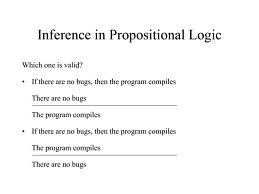by @jensenismo
 Determine whether the argument is valid or invalid. If the argument is valid, state the rule of inference used. If it is invalid, name the fallacy committed.
Determine whether the argument is valid or invalid. If the argument is valid, state the rule of inference used. If it is invalid, name the fallacy committed.
1. If millions of children die yearly from starvation, then something is wrong with the government. Millions of children die yearly from starvation.
Therefore, something is wrong with the government.
2. If world population continues to grow, then Manila will become hopelessly overcrowded.
If Manila become hopelessly overcrowded, then Manila will become polluted.
Therefore, if world population continues to grow, then Manila will become polluted.
3. Either the breach is a safety violation, or it is not subject to fines.
The breach is a not safety violation.
Therefore, it is not subject to fines.